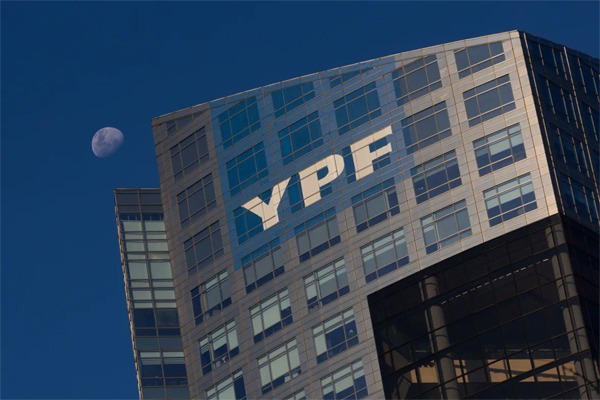Judge Preska also ordered the country to provide banking data on consular, diplomatic and military accounts abroad

Facundo Iglesias, Buenos Airs Herals
BUENOS AIRES
EnergiesNet.com 01 31 2025
Argentina has agreed to provide hedge fund Burford Capital with information on the Central Bank’s gold reserves and other assets following an order from New York Judge Loretta Preska.
The hedge fund is claiming some of the country’s assets as partial payment of the US$16.1 billion Argentina was ordered to pay after losing a lawsuit in 2023 over the expropriation of energy company YPF.
Argentina has repeatedly refused to hand over the data, but Preska’s order last week put an end to the delays. On Wednesday, the judge kickstarted a discovery process, ordering Argentina to produce information on its potential assets. Burford will review the data and decide whether the country has goods it could demand as partial payment.
Among the documents Argentina has been required to turn over so far are case files from a separate case, which the country also lost in 2023. In that lawsuit, the Bahamas-based Bainbridge Fund won a claim against Argentina regarding US$95 million of defaulted debt securities. Earlier this month, Preska said the documents might contain information on Argentine assets that Burford could claim.
Preska also ordered Argentina to gather SWIFT (the main messaging network for international payments) data for “diplomatic, consular, and military accounts outside of Argentina and the United States from third-party financial institutions” and documents about the country’s accounts in the U.S. by February 7, and to compile information based on that data within two weeks of receiving it.
On February 28, Argentina is expected to “substantially” complete the “production of documents in its possession regarding [Central Bank’s] gold reserves,” according to Preska’s mandate.
Argentina had argued that the Central Bank and the Republic are legally separate entities, meaning that the gold reserves do not belong to the government and their details are confidential. Preska said that Argentina “shall produce its own documents concerning the reserves” nonetheless.
A controversial decision
Burford had pushed back against this contention. They argued that, last July, Economy Minister Luis Caputo confirmed during a television interview that the Central Bank had moved some of its gold overseas. This, they said, showed that he had information about the reserves while also representing Argentina’s government.
The decision to send Argentina’s gold overseas was hotly controversial when it was revealed by a freedom of information request filed by the bank workers’ union in July. Observers questioned whether the gold could be seized by foreign courts to pay for international court cases lost by Argentina.
Caputo said in the interview that sending the gold overseas was “a very positive move” because the country could earn returns on it. The Central Bank owns 61 tonnes of gold, valued at about US$4.5 billion.
Sebastián Soler, lawyer and former deputy attorney of the Treasury during Alberto Fernández’s presidential administration, said that the plaintiffs are the only ones who will receive this information.
“[It] will not be published in the case file, nor, unless the plaintiffs use it to support a specific U.S. seizure request, will it be considered by Preska,” Soler wrote on X.
A spokesperson of the current Treasury’s prosecution office did not answer the Herald’s request for comment.
buenosairesherald.com 01 24 2025












